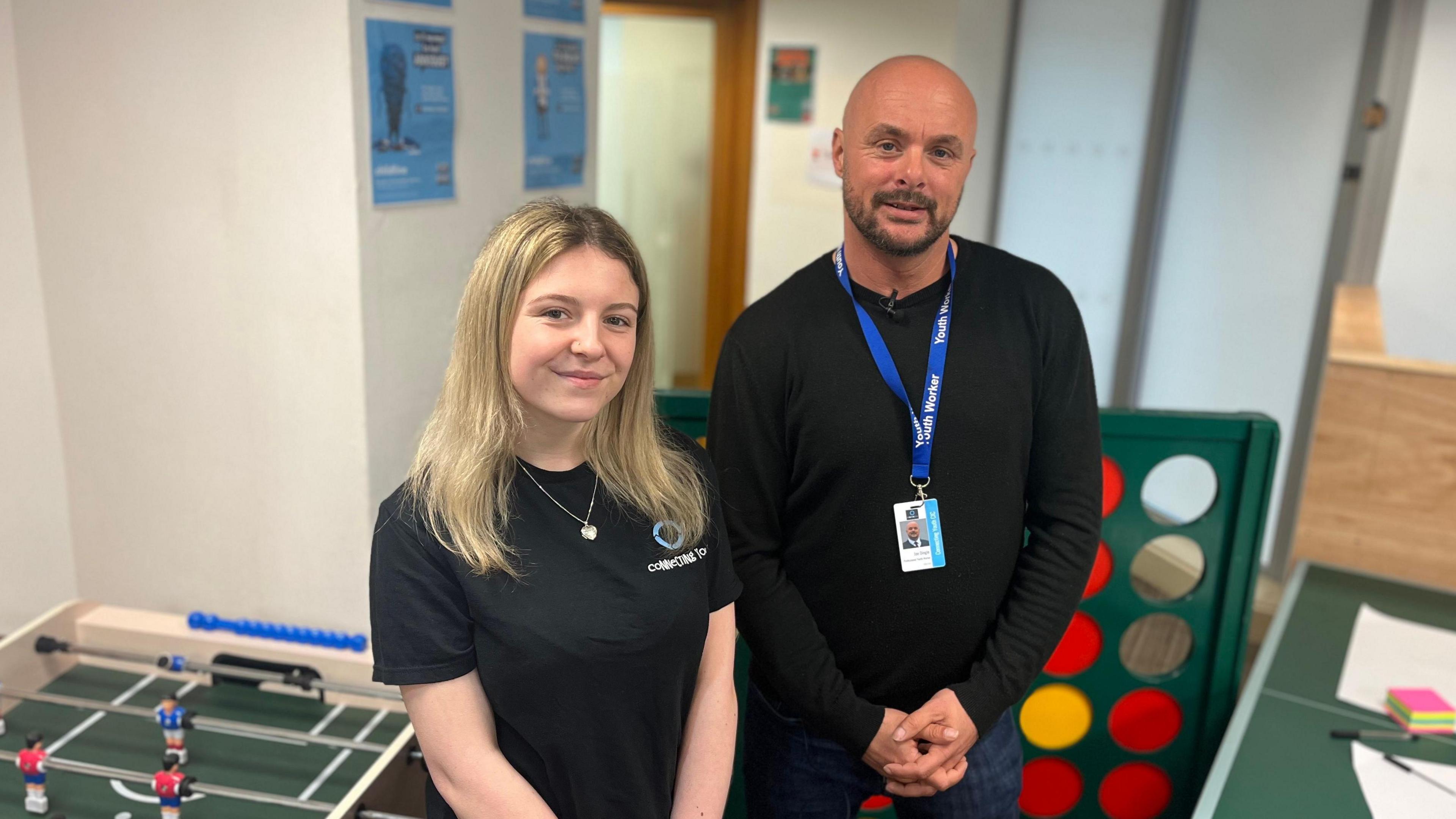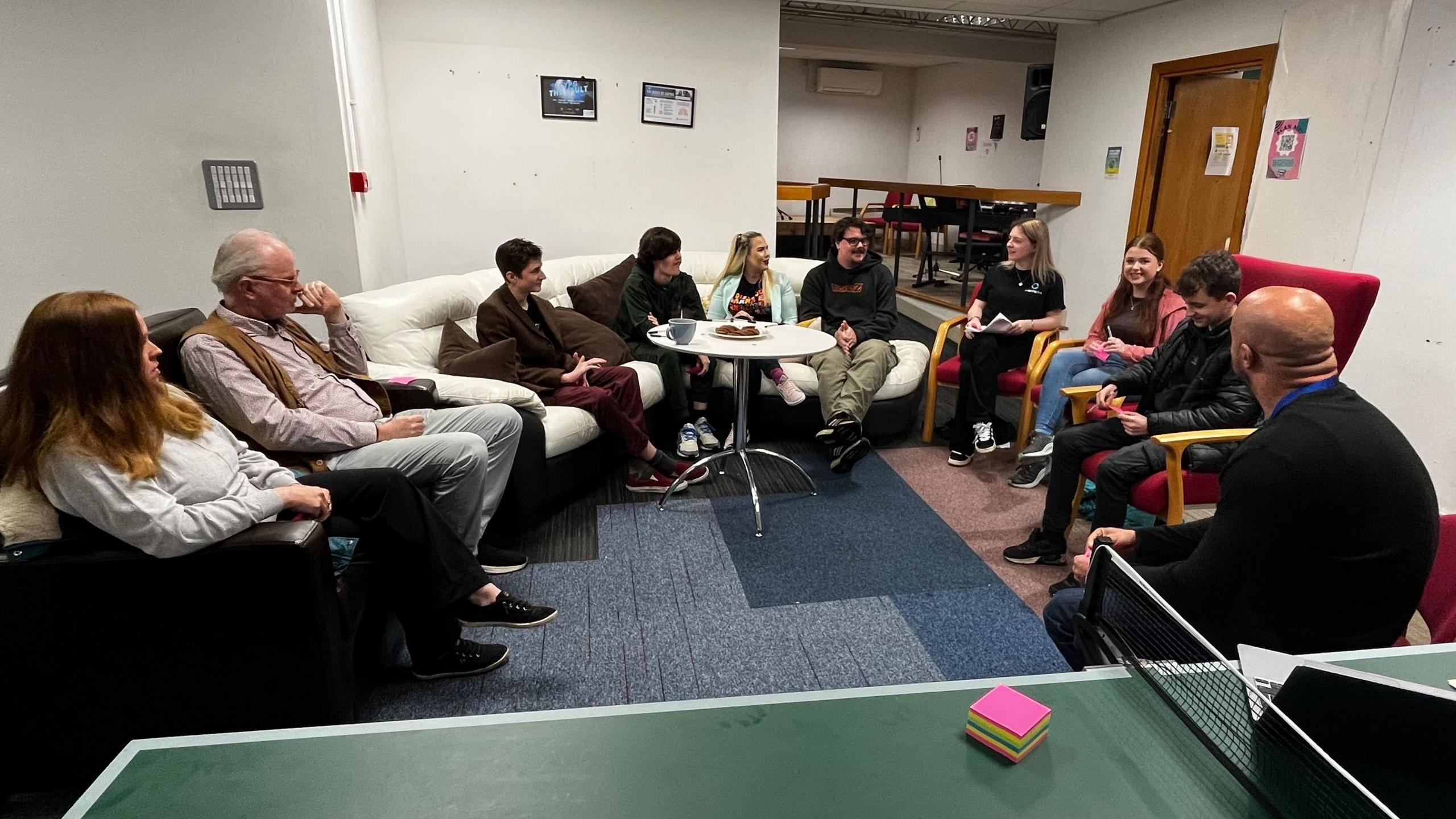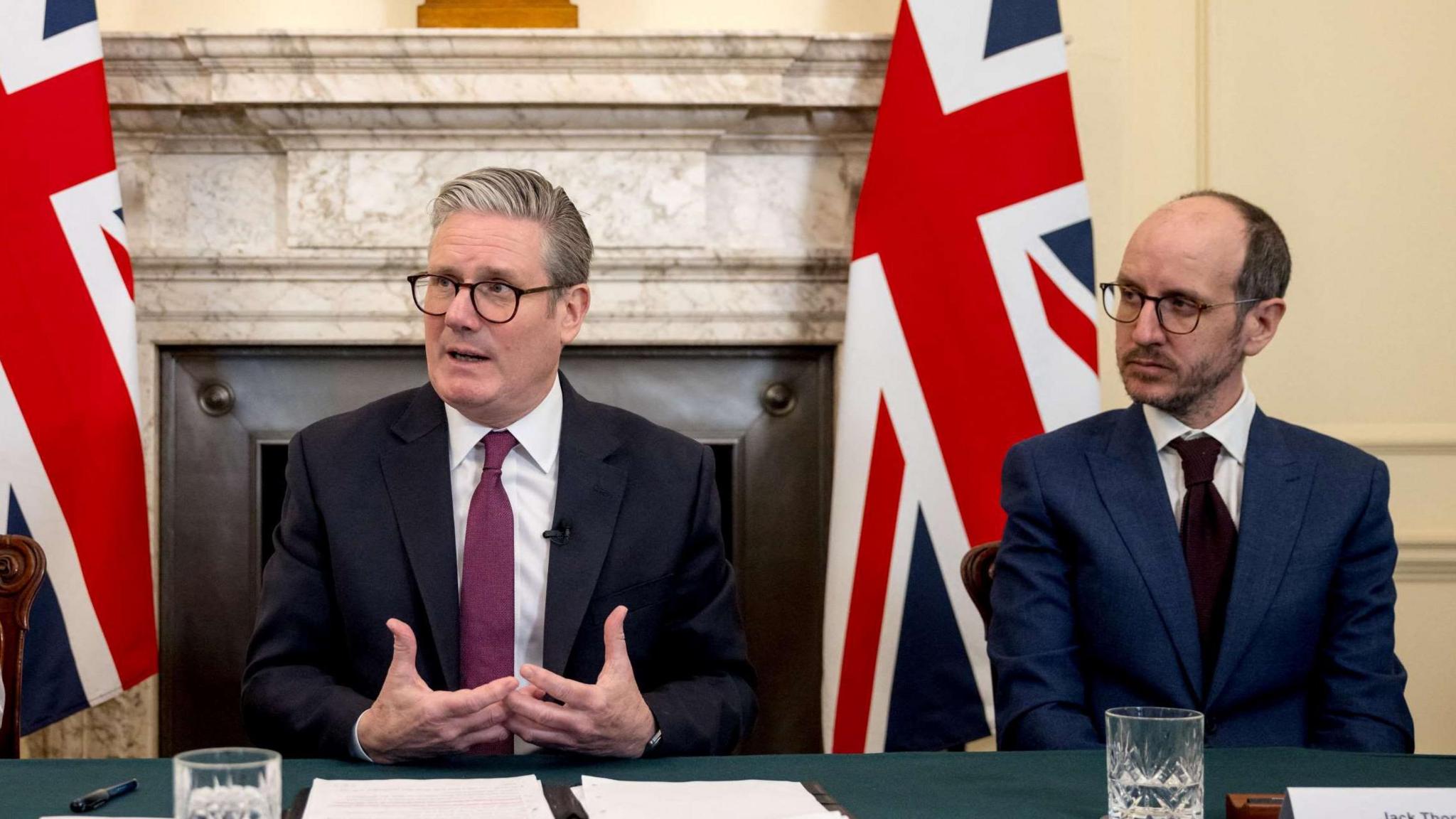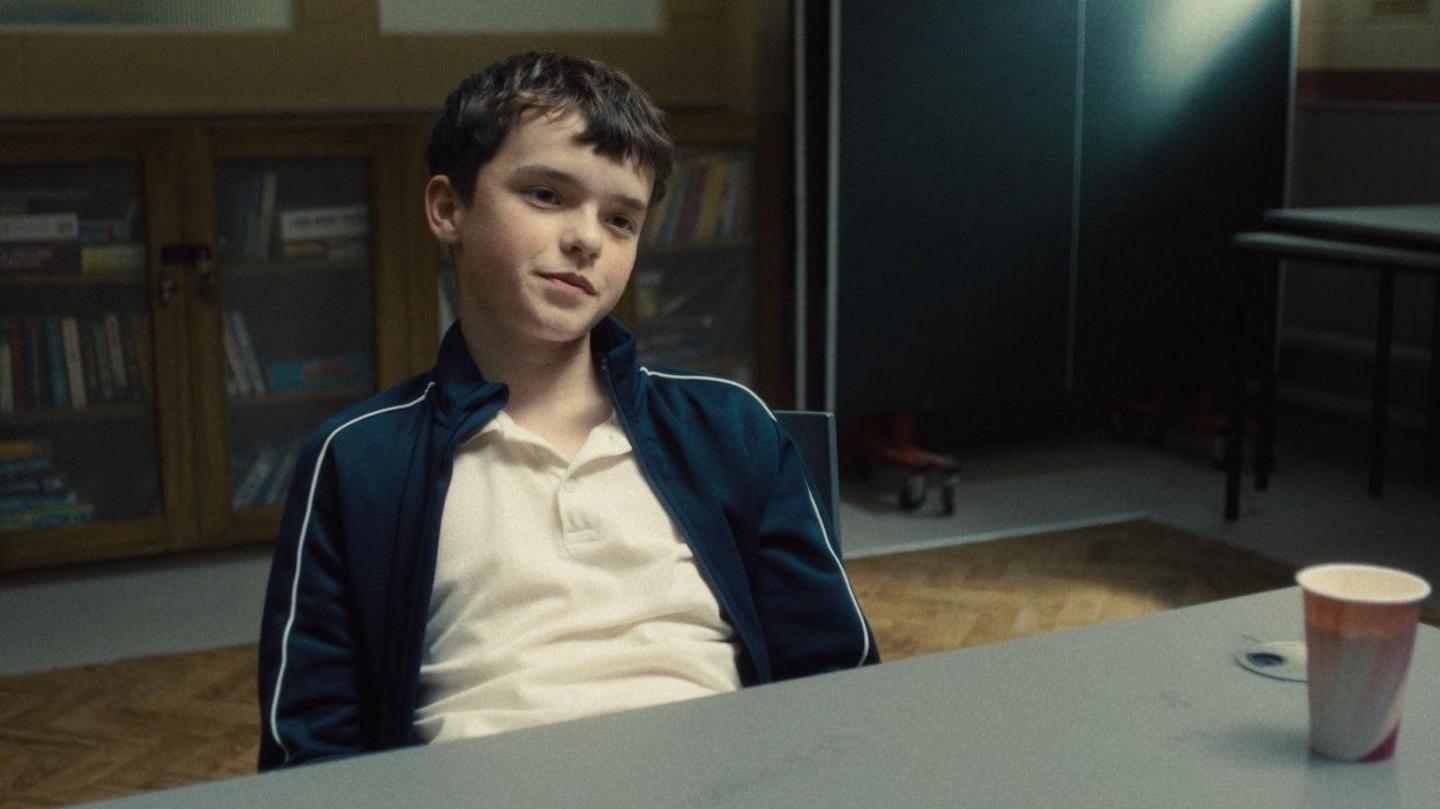Youth service tackles issues from Netflix drama

In their Adolescence Workshop, trainee youth worker Gabby Lloyd and youth worker Jon Dingle talked with young people and their parents about online bullying, misogyny, incel culture and knife crime
- Published
An "Adolescence Workshop" to discuss issues raised by the Netflix drama about a boy accused of murdering a girl from his class has been held at a youth club in Cornwall.
The group discussed questions about the show Adolescence, including: "How do online spaces make bullying easier to hide? Have you ever been made to feel small? And, why do you think some people carry knives?"
Youth worker Jon Dingle, who ran the session for teenagers and parents at the Callington Youth Project Group, said: "The idea was to have a healthy and in-depth discussion around these issues."
Mr Dingle said he believed giving young people better access to youth services would help address the issues raised in the series.

The group of teenagers and parents spent more than an hour discussing issues raised in the Netflix drama Adolescence
Since the drama has aired, "it has been a hot topic for discussion amongst young people", said Mr Dingle, who works with up to 200 young people aged 10 to 19 on a weekly basis, including youth services in Plymouth too.
"I don't think a day goes by in any of the sessions we run where that programme, or an issue relating to that programme, isn't brought up," he said.
Mr Dingle said the drama had highlighted a need for youth services to be increased.
He explained that "a lot of the challenges we see young people face" could be "helped and made better with the right type of spaces to come to, and the right type of people guiding these young people", he said.
"For me, to be able to be part of that is a real honour, but it's also a struggle and a fight because we need more," he added.
'Incredibly topical'
Theo, 16, said the drama delved into a lot of issues that he and people he knew had struggled with.
"It's incredibly topical. How social media polarises people. Especially with misogyny," he said.
Theo's dad, Dan, said the series had helped him better understand an online world that he as a parent did not always feel a part of.
"The thing that really stuck with me was the emojis. And the coding for what that meant within the school culture. That was complete mystery to me," he said.
Dray, 19, said he thought the so-called "80/20 rule", which was featured in the drama and wrongly claims 80% of women are attracted to 20% of men was "completely ridiculous".
"It's not a matter of how you look. It's a matter of how you come across," he said.
Discussing the best way to handle rejection, Dray said to the group: "It's not that person's fault if they don't want to be with you."
Involving parents
Reflecting on what he was trying to achieve by involving parents in the workshop, Mr Dingle said he thought it was "vitally important" that adults were "a bit more clued-up" about the issues affecting young people.
Asked what people could do if they were worried about a young person who was spending most of their spare time in their bedroom, he said: "There will quite often be reasons behind any worrying behaviour, so if you are able to have a frank and honest conversation, that's a good start."
Encouraging parents to seek support from other adults in the lives of their young people, he added: "If you can access a teacher, a youth worker, or someone else who's within their life who has that bit of trust, who can work with you to support that young person, then I think that's got to be the way to go."
Related topics
- Published31 March

- Published20 March

